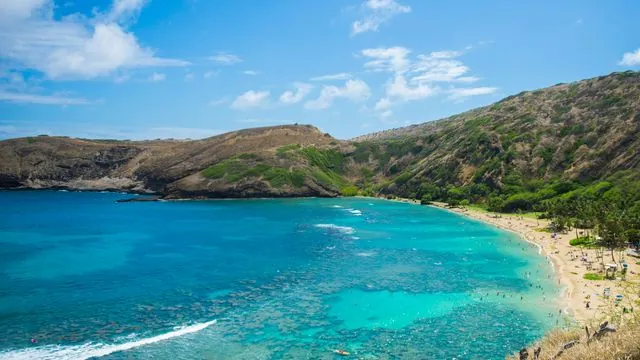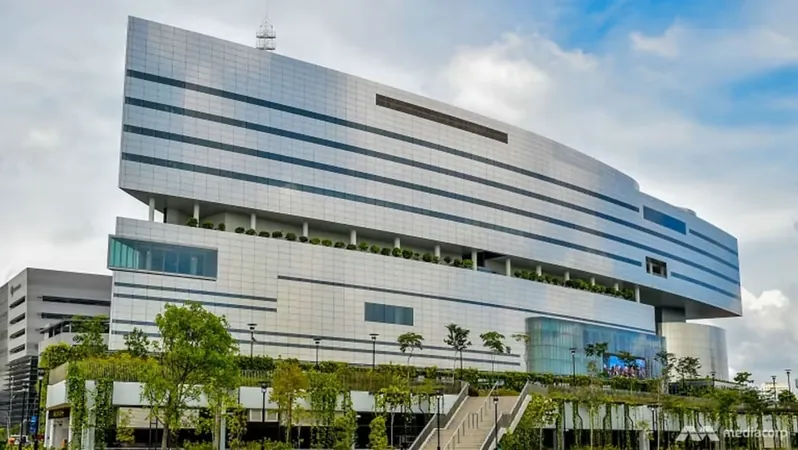
How a Hawaiian Beach Thrived During Lockdowns: A Stunning Recovery Story
2025-09-04
Author: Mei
A Hidden Gem Emerges from the Shadows
During the harsh realities of the 2020 pandemic, Hanauma Bay Nature Preserve—a snorkeling paradise in Hawai‘i—experienced a remarkable transformation. Normally bustling with nearly a million visitors each year, this beloved destination saw a dramatic resurgence in its marine ecosystem when tourism halted.
Nature's Resilience Unveiled
New revelations from the Hawai‘i Institute of Marine Biology (HIMB) have shown that the absence of human activity led to crystal-clear waters and a surprising influx of endangered Hawaiian monk seals. Fish populations flourished, demonstrating the profound effects of reduced tourism on marine life.
Project Manager Aviv Suan expressed the unique opportunity created by this 'natural experiment': "Hanauma Bay was closed for seven months, allowing us to gather critical data on water quality and marine life dynamics exclusively during this period of inactivity." By observing shifts in fish density and behavior, researchers found that essential species like parrotfish thrived without human interference.
A Powerful Reminder of Our Impact
Dr. Elizabeth Main, the study's lead author, noted, "The reef's response was astonishing! The water clarity improved significantly, endangered monk seals made more frequent appearances, and fish numbers soared. These rapid changes highlight the delicate balance of coral reef ecosystems and how deeply human activities affect their health."
Lessons for the Future
The HIMB's findings send a clear message: coral reefs are remarkably resilient and can recover swiftly when human pressures are lifted. Suan emphasized the importance of such observations for effective reef management and sustainable resource protection, vital for the future of Hawaii's natural treasures.
This research serves as a blueprint not only for Hawai‘i but also for marine conservation efforts globally. Strategies like limiting visitor numbers to popular reef sites could foster ecological recovery while still allowing public access.
Balancing Economy and Ecology
"Protecting our reefs doesn't mean sacrificing economic gain," explained Dr. Main. With reef tourism generating billions annually, many visitors are willing to pay more for vibrant, healthy reefs, suggesting that smart management can support both the environment and the tourism industry.
This success story from Hanauma Bay acts as a beacon of hope and a guide toward sustainable practices that benefit both nature and local communities.


 Brasil (PT)
Brasil (PT)
 Canada (EN)
Canada (EN)
 Chile (ES)
Chile (ES)
 Česko (CS)
Česko (CS)
 대한민국 (KO)
대한민국 (KO)
 España (ES)
España (ES)
 France (FR)
France (FR)
 Hong Kong (EN)
Hong Kong (EN)
 Italia (IT)
Italia (IT)
 日本 (JA)
日本 (JA)
 Magyarország (HU)
Magyarország (HU)
 Norge (NO)
Norge (NO)
 Polska (PL)
Polska (PL)
 Schweiz (DE)
Schweiz (DE)
 Singapore (EN)
Singapore (EN)
 Sverige (SV)
Sverige (SV)
 Suomi (FI)
Suomi (FI)
 Türkiye (TR)
Türkiye (TR)
 الإمارات العربية المتحدة (AR)
الإمارات العربية المتحدة (AR)